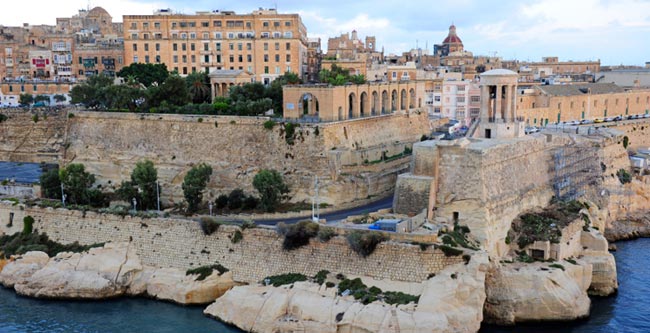Fears that Malta could follow Cyprus into a financial abyss are unfounded, according to financial experts.
The similarities between the two Mediterranean islands are uncanny but their current positions, in financial terms, are worlds apart.
While both countries signed up to the European Union in 2004, joined the Euro and both have banking sectors that dominate their economies, the comparisons end there.
Investors have been growing increasingly uneasy about the prospects for Malta since Cyprus received a desperately needed bail out and raided the bank accounts of its banks to help pay for its current crisis.
Without the 10 billion Euros of aid, the economy in Cyprus would have collapsed and the country would have had to leave the Euro zone.
Financial shocks
However, experts looking at the banking risk of Malta claim it is unlikely that the island will need rescuing and instead point to the woes of Greece, Ireland, Spain and Portugal as far worse.
Analysts at the European Commission predict growth in Malta, which has a population of 450,000, this year led by domestic demand and increasing exports.
Malta’s unemployment rate is just 6.4%, while debt as a proportion of GDP is running at 72%; both below the Euro zone average.
However, Malta’s economy is prone to financial shocks because of reliance on financial services, with the sector around eight times bigger than GDP, similar to Cyprus before the rescue.
The problem in Cyprus is that two big domestic banks dominated the sector, which relied on foreign money deposits, mainly from Russia, and the banks then invested in government bonds abroad, especially in Greece.
Ratings thumbs up
The situation in Malta is slightly different since many of the banks in the financial services sector are subsidiaries of overseas banks which would be responsible for bailing them out should they hit trouble.
Malta’s domestic banks have assets that add up to 200% of the island’s GDP which means they would not be allowed to fail because if they did so Malta’s economy would probably collapse.
Analysts say that the proportion of GDP was twice as high in Cyprus when their economy hit the skids.
The Maltese economy has also had a thumbs-up from ratings agency Fitch which says the island is better placed to handling an economic crisis. The International Monetary Fund (IMF) has also expressed confidence in a report published last year.
